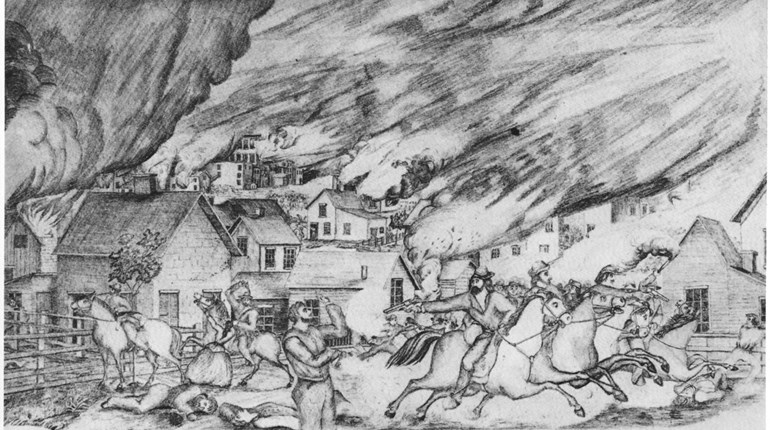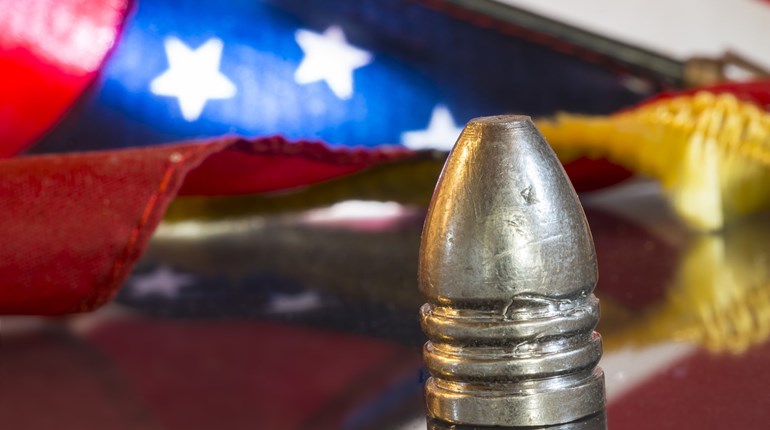
American presidential biographies rarely go long without comparisons, which is actually a bit peculiar. A first reason is unsurprising: Especially for modern chief executives, partisanship may cloud rankings to the point of uselessness.
But left in the hands of historians with presumably longer views, such rankings remind us—strangely, we … ahem … grant—of thoroughbred horseracing and a dominant English racer and sire named Eclipse (1764-1789). He never ran except to win, and often won by huge margins. His owner wrote him into history with a June 1769 race report of “Eclipse first and the rest nowhere.”
And so it is with Abraham Lincoln. It’s difficult to find any ranking that doesn’t place the Civil War president miles ahead of every other U.S. president—and if there is a second, he too is no surprise: George Washington. Like Washington, Lincoln was an accomplished, modest man who led a young nation through difficult times, and—especially in Lincoln’s case—spectacularly costly tumult. Though Washington enjoyed but little peace at the end of his labors on behalf of the nation he loved, Lincoln had none: 152 years ago this week, John Wilkes Booth’s ambush of the Lincolns in the Presidential Box at Ford’s Theater bore dreadful fruit.
Abraham Lincoln was not himself a soldier of consequence, though he did serve briefly in the 4th Illinois Regiment’s 1832 march against Chief Black Hawk’s Sauk Indians. This very modest experience makes his Civil War management of Union Army generals all the more remarkable. Though it is often and incorrectly believed that the Confederacy held a substantial leadership advantage, numbers don’t support the contention. At the outbreak of the war, professional military men (defined as West Point graduates) served in the Union Army at a slightly more than two-to-one ratio. The South had the advantage of two other military colleges, and presumably more of those graduates, but they produced relatively few officers.
Nor was the notion of a professional soldier a durable one in the 19th century: Officers could and quite frequently did resign their commissions to pursue other (usually more lucrative) prospects. Soldiering at any level did not pay well, nor was the Army large and opportunity-ripe: At the outbreak of hostilities, the entire organization numbered only 16,000 men. Many of these would leave to serve the Confederacy. With McClellan, they instead endured slow disaster in the Peninsular Campaign, and later at Anteitam.
Rank was no guarantee of excellence, either. Considerable patronage was often involved achieving the higher grades. George B. McClellan was a railroad executive when the Civil War broke out, but because of political connections and previous military experience, Ohio Gov. William Dennison appointed him a major general (he had resigned as a captain in 1857).
McClellan enjoyed early success in command of Ohio forces and drove Confederates forces before him at Phillipi, Rich Mountain and Carrick’s Ford. He arrived in Washington in July 1861 on the crest of these successes, and was shortly asked to reconstitute the Union Army in the wake of the defeat at Bull Run. He set about forging a mighty weapon in the Army of the Potomac by improving both training and morale in the largely volunteer ranks. His troubles with politicians began here, too, with President Lincoln among them: Republicans were hoping for a speedy and relatively bloodless assault on Confederate forces and a hasty end to the war.
With McClellan, they instead endured slow disaster in the Peninsular Campaign, and later at Anteitam. By November 1862, Lincoln’s patience with his prewar acquaintance was at an end. (McClellan’s dislike of Lincoln intensified to the point that he ran against the incumbent in the 1864 election. His battlefield misfortunes followed him to the polls, and Lincoln beat him soundly.)
Major General Ambrose Burnside was another West Pointer (1847) who left the Army. An apparently clever and scrupulously honest man—he had refused to pay a bribe for the adoption of a carbine he invented before the war—he nevertheless was “remarkably unsuited to command,” according to historian David S. Heidler. President Lincoln replaced the prickly McClellan with Burnside in November of 1862. Burnside did not want the job.
Burnside, like McClellen, had established his reputation mostly on the basis of smaller actions early in the war. On a grander stage and against antagonists like Robert E. Lee and Thomas Jonathan “Stonewall” Jackson (a classmate of McClellan’s), he shared another of McClellan’s traits—an unwillingness to pursue his foe to destruction. He endured somewhat longer than McClellan in Lincoln’s good graces, however, though a defeat at Fredericksburg and a revolt among his senior officers ended his major commands in January 1863.
Burnside captured and defended Knoxville in November of 1863, but bad luck and command squabbling would essentially end his career after the debacle of “The Crater” at Petersburg.
The end of the Lincoln’s search for a winning general is somewhat better known than the beginning, though the path of that victor was perhaps the most tortured of all. Hiram Ulysses Grant was born in Ohio in 1822, though a clerical error enrolled him at West Point as Ulysses Simpson Grant. He graduated from the USMA without difficulty, but “a military life had no charms for me,” he later recollected.
When the Civil War began, he too was no longer in the U.S. Army, though he was (fortunately, as it turned out) near the end of many years of hardship and disappointment in civilian life. As a former soldier, his skills were suddenly in demand: Illinois Gov. Richard Yates asked him to recruit and train volunteers for Lincoln’s call-up, and Grant accepted.In October 1863, he promoted Grant to major general in the regular Army, and in the spring of 1864 to lieutenant general and overall command of all Union troops, answering solely to Lincoln.
His early course to soldiering success was far from smooth. General McClellan refused to even meet with Grant, remembering accusations of excessive drinking early in Grant’s career. Others, however, like Major Generals John Fremont and Henry Halleck, saw something in Grant, and were rewarded. By June 1861, Grant had a flag of his own, and a string of victories in the west to counterbalance serial disasters in the east.
Lincoln was watching. Against many critics, the plain-spoken lawyer from Illinois had found his man. “I can’t spare this man; he fights,” he declared of Grant. In October 1863, he promoted Grant to major general in the regular Army, and in the spring of 1864 to lieutenant general and overall command of all Union troops, answering solely to Lincoln. After moving his family east to Washington, Grant—working often with the interested President—began to forge a plan to finally defeat the Confederacy.
Cutting General Lee’s supply lines and extending his defensive perimeter did, in the end, what Shiloh, Gettysburg and Cold Harbor and all the rest could not. On April 9, 1865, Lee surrendered the Army of Northern Virginia to Grant at Appomattox Courthouse.
Frank Winn has been studying arms and their relationship to tyranny, meaningful liberty and personal security all his adult life. He has been a firearms safety/shooting instructor for more than 20 years, and earned state, regional and national titles in several competitive disciplines.


































